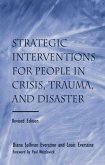When a loved one, family member, spouse, or close friend develops a mental illness, the profound changes to the afflicted person resonate through the family with unique and life-altering consequences, often with as great an impact on them as on the person suffering with the illness. Family members have to adapt and make changes to lifestyles and future plans, and often face depression, stress, and other secondary issues, as they learn to cope with a new situation. And today, despite immense medical and political progress and open debate on mental disorders, attention is still overwhelmingly focused on the treatment of the patient, while family members are relegated to adjunctive roles in treatment, and sometimes even viewed as barriers to effective therapy and recovery. Seemingly in contradiction with the interpersonal nature of most mental disorders (not to mention the social stigma that affects the family as well as the individual), a patient-centered approach to treatment remains the most common perspective. This book approaches these issues from the perspective of the family members, giving a voice to the experiences of families coping with such a profound change to one of their own. It looks at how families initially react to a diagnosis, how they struggle through shock, anger, and trauma, adapt to new circumstances, and cope with their situation. This unique volume draws from the author's own original research and her work with families in the United States and Japan, and presents a cross-cultural comparison of families' experiences in both countries. Written with a focus on the sociological, as well as psychological, aspects of these experiences, the book featuresfirst-hand accounts from family members, complementing the author's analysis and discussion. While there are of course variations in the experiences of American and Japanese families, the author ultimately finds that there is considerably more in common. Thus the book presents a serie








